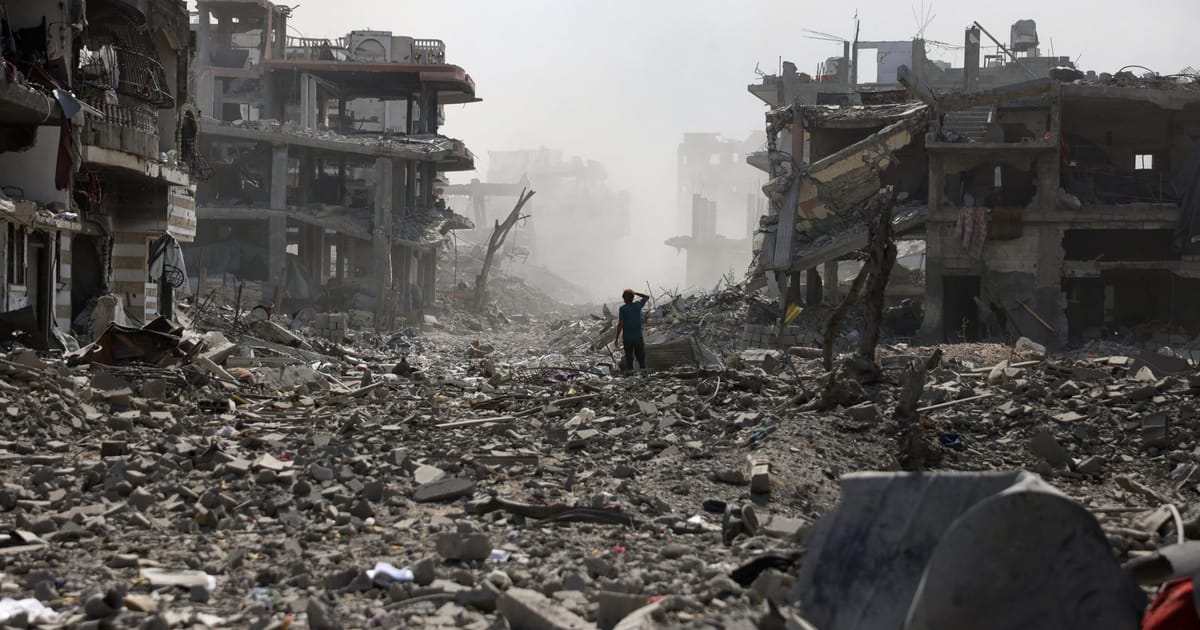

In an evolving geopolitical landscape, recent developments have underscored the intricate web of international relations, spotlighting the challenges and diplomatic pathways pursued by nations and organizations worldwide. These narratives, centered on the European Commission, the United States, and various international actors, weave together to provide a broader understanding of the global interplay of diplomacy and strategic interests.
The European Commission recently responded to remarks made by its Vice President, Teresa Ribera, regarding the ongoing conflict in Gaza. Ribera characterized the conflict as genocide, prompting a measured clarification from the European Commission. The principal spokesperson emphasized that the determination of such legal definitions is not within the Commission’s purview but lies with the courts. This response highlights the careful dance of diplomacy where statements are closely scrutinized, and the significance of precision in diplomatic language is paramount. It reflects the European Union’s commitment to a process-driven approach, underlining the importance of judicial processes in international law.
Across the Atlantic, the United States has taken decisive action by imposing sanctions on certain Palestinian non-governmental organizations (NGOs). These groups, based in Gaza and Ramallah, have petitioned the International Criminal Court (ICC) to investigate alleged war crimes in the region. By targeting the Palestinian Centre for Human Rights, Al Mezan Center for Human Rights, and Al-Haq, the U.S. underscores its stance against the court’s involvement in what it considers politically motivated inquiries. The actions illustrate the complexity of balancing national interests with international legal proceedings, as well as the intricate diplomacy required to navigate these international legal waters.
Further demonstrating the United States’ active role on the world stage, the U.S. has also responded to tensions in the Caribbean with military precision. President Trump has authorized the deployment of F-35 fighter jets to Puerto Rico in a strategic effort to counteract drug cartel operations. This decision follows a contentious incident involving a U.S. missile strike on a vessel purportedly used by Venezuelan traffickers. Such moves reflect the administration’s resolve to combat organized crime while ensuring regional stability. It also highlights the multifaceted nature of security, where combatting illegal drug activities intersects with broader geopolitical considerations.
At these crossroads of diplomatic and strategic action, a broader narrative emerges. These recent events underscore the continuous balancing act that defines contemporary international relations. Each development threads through a larger tapestry of global policy, illustrating the confluence of legal, diplomatic, and strategic interests that guide decision-making on the world stage. The interplay of these dynamics requires a nuanced understanding of the motives and implications behind each measure, from judicial to military actions.
On one front, the European Commission’s response to heightened rhetoric emphasizes the importance of legal frameworks in adjudicating international disputes, underscoring the value of methodical and judicial processes. Meanwhile, the U.S. government, through its sanctions and military actions, demonstrates its strategic imperatives, seeking to safeguard national interests while addressing grievances and challenges in the international legal domain. These actions offer a glimpse into the broader strategic calculations at play, highlighting how nations navigate complex legal and diplomatic arenas to maintain stability and pursue their objectives.
The global landscape remains dynamic, with each diplomatic move adding another layer to the intricate tapestry of international relations. As stakeholders continue to engage across various platforms, the focus remains on fostering stability, ensuring adherence to international norms, and balancing national interests with collective global responsibilities. In this interconnected world, the pursuit of peace and security remains a shared endeavor, demanding nuanced approaches and collaborative efforts.
In conclusion, the current geopolitical developments echo the enduring complexities and challenges of international diplomacy. The engagement of nations and institutions across legal and military platforms reflects a commitment to addressing global issues through a blend of strategic foresight and cooperative action. As the world continues to evolve, the intricate dance of diplomacy serves as a reminder of the interconnectedness and shared aspirations that define the global community.
Source: {link}
